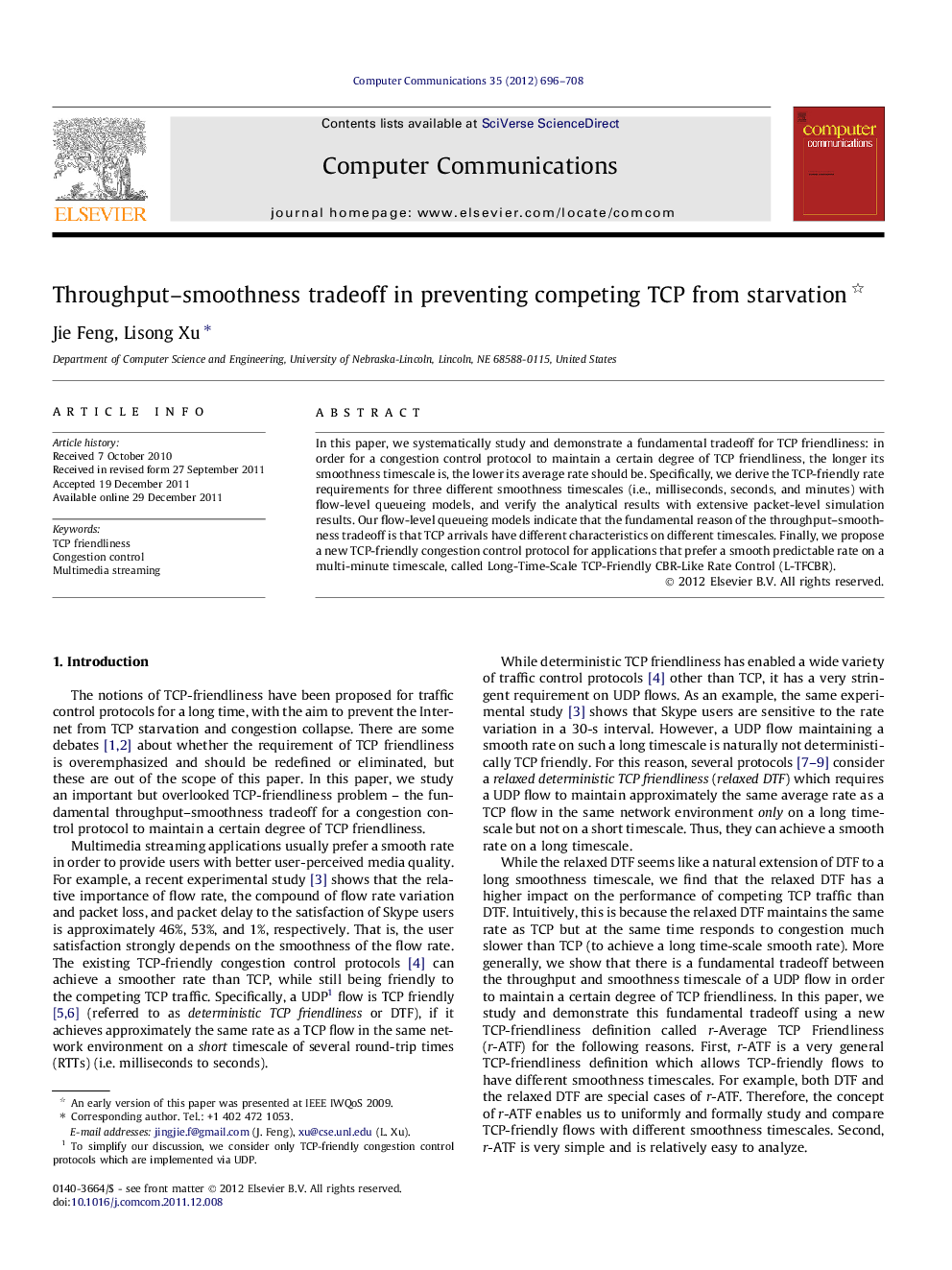| Article ID | Journal | Published Year | Pages | File Type |
|---|---|---|---|---|
| 448060 | Computer Communications | 2012 | 13 Pages |
In this paper, we systematically study and demonstrate a fundamental tradeoff for TCP friendliness: in order for a congestion control protocol to maintain a certain degree of TCP friendliness, the longer its smoothness timescale is, the lower its average rate should be. Specifically, we derive the TCP-friendly rate requirements for three different smoothness timescales (i.e., milliseconds, seconds, and minutes) with flow-level queueing models, and verify the analytical results with extensive packet-level simulation results. Our flow-level queueing models indicate that the fundamental reason of the throughput–smoothness tradeoff is that TCP arrivals have different characteristics on different timescales. Finally, we propose a new TCP-friendly congestion control protocol for applications that prefer a smooth predictable rate on a multi-minute timescale, called Long-Time-Scale TCP-Friendly CBR-Like Rate Control (L-TFCBR).
